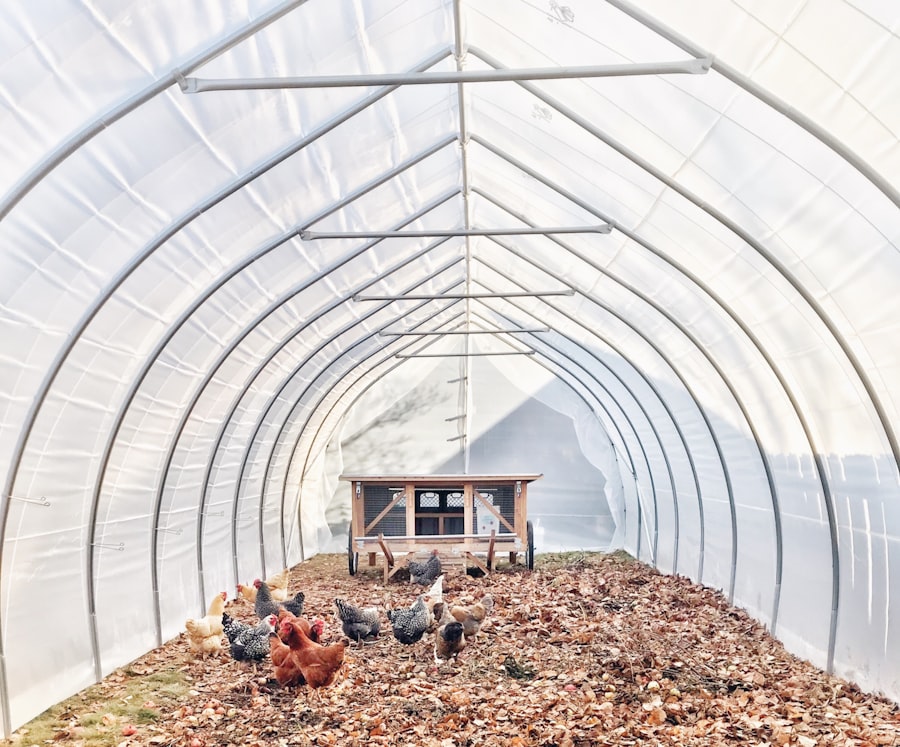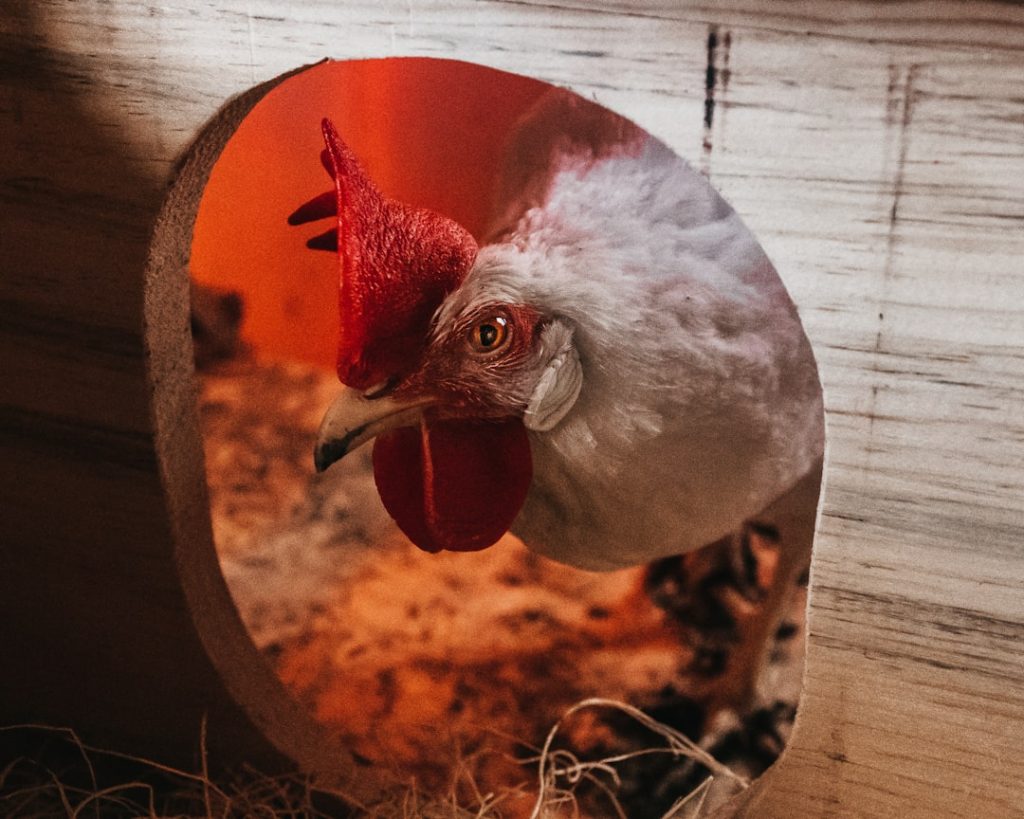Keeping chickens is a popular activity for both rural and urban dwellers. These birds provide fresh eggs, serve as pets, and can assist with pest control in gardens. Before starting a chicken-keeping venture, it is essential to understand the basic requirements for their care.
This includes daily maintenance, coop and run management, and health monitoring. Chickens are generally low-maintenance animals, making them suitable for novice and experienced keepers alike. They require a secure living space, consistent access to food and water, and regular health checks.
With proper preparation and knowledge, chicken keeping can be a rewarding experience for individuals and families. People choose to raise chickens for various reasons, including egg production, meat, or as companion animals. Regardless of the motivation, incorporating chickens into one’s lifestyle can offer numerous benefits and learning opportunities.
Table of Contents
- 1 Daily Care and Maintenance
- 2 Coop and Run Maintenance
- 3 Health and Veterinary Care
- 4 Egg Collection and Handling
- 5 Predation and Security
- 6 Is Keeping Chickens Hard Work?
- 7 FAQs
- 7.1 What are the basic requirements for keeping chickens?
- 7.2 How much time does it take to care for chickens on a daily basis?
- 7.3 What are the common challenges in keeping chickens?
- 7.4 Do chickens require a lot of space?
- 7.5 Is it difficult to keep chickens in urban or suburban areas?
- 7.6 What are the benefits of keeping chickens despite the potential challenges?
Key Takeaways
- Keeping chickens can be a rewarding and enjoyable experience for those interested in raising their own flock.
- Daily care and maintenance of chickens includes providing fresh water, feeding them a balanced diet, and collecting eggs.
- Coop and run maintenance is essential for keeping chickens healthy and safe, including regular cleaning and predator-proofing.
- Health and veterinary care for chickens involves monitoring for signs of illness and seeking professional help when needed.
- Egg collection and handling should be done carefully to ensure the eggs are clean and safe for consumption.
- Predation and security are important considerations for keeping chickens safe from predators such as foxes, raccoons, and birds of prey.
- Keeping chickens requires dedication and hard work, but the rewards of fresh eggs and the joy of raising chickens can make it all worthwhile.
Daily Care and Maintenance
Providing Nutritious Food and Fresh Water
Providing fresh food and water, as well as keeping their living space clean, are key components of daily care. Chickens require a balanced diet that includes a mix of grains, seeds, fruits, vegetables, and protein sources such as mealworms or kitchen scraps. It’s important to provide them with access to clean water at all times, as dehydration can quickly become a serious issue for chickens.
Maintaining a Clean Living Environment
Regular cleaning of their coop and run is necessary to prevent the buildup of waste and bacteria, which can lead to health problems for the birds.
In addition to food and water, chickens also need regular attention and social interaction. Spending time with your chickens not only helps to keep them tame and friendly but also allows you to monitor their health and behavior. Daily care also involves checking for any signs of illness or injury, as early detection can be crucial in preventing the spread of disease or addressing health issues. By establishing a daily routine for caring for your chickens, you can ensure that they receive the attention and care they need to thrive.
Coop and Run Maintenance

The coop and run are the primary living spaces for your chickens, so it’s important to keep them clean, secure, and comfortable. Regular maintenance of the coop involves cleaning out soiled bedding, removing any debris or waste, and ensuring that the nesting boxes are clean and free of pests. It’s also important to provide adequate ventilation and insulation in the coop to help regulate temperature and prevent moisture buildup, which can lead to respiratory issues for the chickens.
The run should be spacious enough to allow the chickens to move around freely and engage in natural behaviors such as scratching and dust bathing. Regularly inspecting the run for any signs of wear or damage is important to prevent predators from gaining access to the chickens. Additionally, providing enrichment such as perches, dust bathing areas, and toys can help keep the chickens entertained and reduce stress.
By maintaining a clean and secure living environment for your chickens, you can help prevent the spread of disease, reduce the risk of predation, and ensure that your chickens are comfortable and content in their home.
Health and Veterinary Care
Maintaining the health of your chickens is essential for their overall well-being and productivity. Regular health checks should be conducted to monitor for any signs of illness or injury. Common health issues in chickens include respiratory infections, parasites, and injuries from pecking or fighting.
It’s important to familiarize yourself with the signs of common chicken illnesses so that you can take prompt action if necessary. In addition to regular health checks, it’s important to establish a relationship with a poultry veterinarian who can provide guidance on preventative care, vaccinations, and treatment options for any health issues that may arise. Vaccinations for common poultry diseases such as Marek’s disease and Newcastle disease can help protect your flock from serious illnesses.
Proper nutrition is also crucial for maintaining the health of your chickens. Providing a balanced diet that meets their nutritional needs is essential for supporting their immune system and overall health. Additionally, access to clean water at all times is important for preventing dehydration and supporting proper digestion.
By staying proactive about the health of your chickens and seeking veterinary care when needed, you can help ensure that your flock remains healthy and productive.
Egg Collection and Handling
One of the most rewarding aspects of keeping chickens is collecting fresh eggs from your flock. Proper egg collection and handling practices are important for ensuring that the eggs are safe to eat and maintain their quality. Eggs should be collected daily to prevent them from being damaged or soiled by the chickens or other environmental factors.
When collecting eggs, it’s important to handle them gently to avoid cracking or breaking the shells. Inspecting each egg for any signs of damage or contamination is important before storing or consuming them. Eggs should be stored in a cool, dry place away from strong odors or contaminants to maintain their freshness.
Proper egg handling practices also include cleaning dirty eggs before storage using a gentle abrasive such as sandpaper or a brush. It’s important to avoid washing eggs with water, as this can remove the protective bloom on the shell that helps prevent bacteria from entering the egg. By following proper egg collection and handling practices, you can enjoy fresh, high-quality eggs from your flock while ensuring food safety for you and your family.
Predation and Security

Securing the Coop
Securing the coop with sturdy locks and latches can help prevent predators from entering at night when the chickens are roosting. Additionally, reinforcing the coop with hardware cloth or wire mesh can help prevent predators from digging under or chewing through the walls.
Protecting the Run
In the run, it’s essential to provide adequate fencing that is buried underground to prevent digging predators from gaining access. Adding a roof or netting over the run can also help protect the chickens from aerial predators such as hawks.
Maintenance and Inspection
Regularly inspecting the coop and run for any signs of wear or damage is vital for maintaining security. By taking proactive measures to protect your flock from predators, you can help ensure their safety and well-being.
Is Keeping Chickens Hard Work?
Keeping chickens requires dedication, time, and effort, but the rewards are well worth it. From daily care and maintenance to coop and run upkeep, as well as health and veterinary care, there are many aspects to consider when deciding to keep chickens. While there are challenges such as predation and health issues that may arise, with proper knowledge and preparation, keeping chickens can be a fulfilling and enjoyable experience.
By establishing a daily routine for caring for your chickens, maintaining a clean and secure living environment, staying proactive about their health, practicing proper egg collection and handling techniques, and taking measures to protect them from predators, you can ensure that your flock remains happy, healthy, and productive. Whether you’re interested in raising chickens for their eggs, meat, or simply as pets, there are many benefits to be gained from welcoming these feathered creatures into your life. With dedication and proper care, keeping chickens can be a rewarding experience that brings joy and satisfaction to both you and your feathered friends.
Keeping chickens can be hard work, but with the right resources and knowledge, it can be a rewarding experience. If you’re considering building a large chicken coop, you may want to check out this article on large chicken coop ideas for some inspiration. Additionally, if you have an old shed that you’re thinking of converting into a chicken coop, this article on converting a shed to a chicken coop may provide some helpful tips. And if you’re interested in breeding turkeys, you might want to read up on the mating season for turkeys to ensure a successful breeding process.
FAQs
What are the basic requirements for keeping chickens?
Basic requirements for keeping chickens include a suitable coop or housing, access to fresh water, proper nutrition, and protection from predators.
How much time does it take to care for chickens on a daily basis?
Caring for chickens typically requires about 20-30 minutes of daily maintenance, including feeding, watering, and collecting eggs.
What are the common challenges in keeping chickens?
Common challenges in keeping chickens include predator attacks, disease prevention, and maintaining a clean and odor-free coop.
Do chickens require a lot of space?
Chickens require a minimum of 2-3 square feet of space per bird in the coop, as well as access to a secure outdoor area for foraging and exercise.
Is it difficult to keep chickens in urban or suburban areas?
Keeping chickens in urban or suburban areas may require adherence to local regulations and ordinances, as well as consideration for noise and odor concerns from neighbors.
What are the benefits of keeping chickens despite the potential challenges?
The benefits of keeping chickens include a sustainable source of fresh eggs, natural pest control in the garden, and the enjoyment of observing and interacting with the birds.
Meet Walter, the feathered-friend fanatic of Florida! Nestled in the sunshine state, Walter struts through life with his feathered companions, clucking his way to happiness. With a coop that’s fancier than a five-star hotel, he’s the Don Juan of the chicken world. When he’s not teaching his hens to do the cha-cha, you’ll find him in a heated debate with his prized rooster, Sir Clucks-a-Lot. Walter’s poultry passion is no yolk; he’s the sunny-side-up guy you never knew you needed in your flock of friends!







